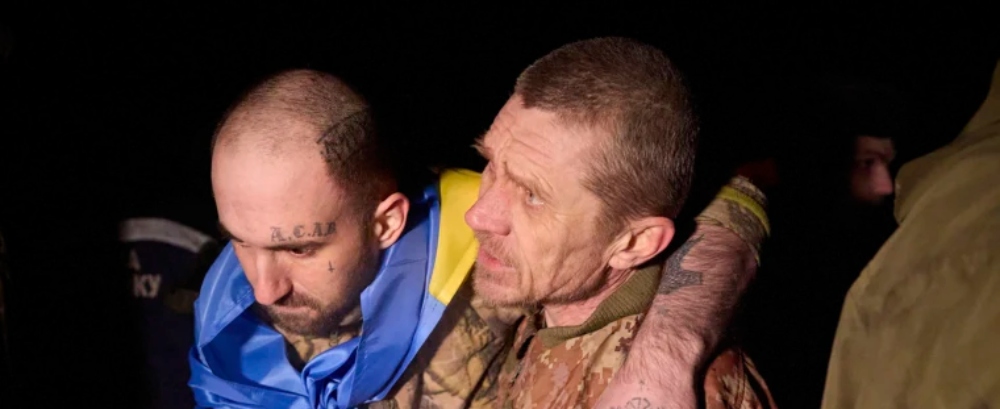Comments
- No comments found

Ukraine and Russia conducted a monumental exchange of over 200 prisoners of war.
This marks the most extensive such swap since the commencement of the war in February 2022. Ukrainian President Volodymyr Zelensky revealed the news via a social media post, celebrating the return of more than 200 Ukrainian soldiers and civilians from Russian captivity. The exchanged individuals included seven soldiers renowned for their defense of Snake Island, a symbolic outpost in the Black Sea that resisted a Russian takeover in February 2022. The exchange, the first major one since August, also involved POWs from Mariupol, the Azovstal steel plant, and detainees from the Chernobyl nuclear power plant.
Video footage released by the Ukrainian Presidency portrayed the freed prisoners draped in Ukraine's blue and white flag, underscoring the emotional significance of their release. Andriy Yermak, the Head of the Office of the President of Ukraine, described the exchange as "difficult" after a prolonged pause. The last major prisoner exchange occurred in August 2023, with Yermak expressing the commitment to continue working toward securing the release of all detained Ukrainians. In reciprocity, Russia reported the return of 248 Russian servicemen from territories under Ukrainian control. The Russian defense ministry attributed the success of the exchange to the "humanitarian intervention" of the United Arab Emirates. The ministry pledged to provide essential medical and psychological assistance to the returned servicemen, emphasizing their treatment at ministry-operated medical facilities.
The United Arab Emirates' Ministry of Foreign Affairs commended the successful mediation, considering it a reflection of the amicable relations the UAE maintains with both Russia and Ukraine. The exchange serves as a rare moment of cooperation in the ongoing war, which is approaching its third year and has recently witnessed some of the most severe attacks to date. In December, Russia initiated its largest aerial assault on Ukraine since the conflict's initiation, resulting in significant casualties and injuries. The reciprocal hostilities underscore the ongoing challenges and complexities in the region, even as diplomatic efforts occasionally yield moments of collaborative action.
The possibility of peace between Russia and Ukraine remains a complex and evolving geopolitical issue. Achieving lasting peace requires addressing the root causes of the conflict, negotiating diplomatic solutions, and navigating the geopolitical dynamics at play. While diplomatic efforts, negotiations, and peace talks have been initiated at various points, achieving a comprehensive and enduring resolution is challenging.
Several factors contribute to the complexity of the situation, including territorial disputes, historical tensions, geopolitical interests, and the involvement of other international actors. The conflict, which began in 2014, has resulted in significant human suffering, displacement, and strained relations between the two countries.
Efforts by the international community, including diplomatic initiatives and sanctions, aim to encourage a peaceful resolution. However, the path to sustainable peace involves navigating intricate political, economic, and security considerations. The willingness of both parties to engage in meaningful dialogue, compromise on key issues, and adhere to agreements will be crucial in determining the feasibility of long-term peace.
Ultimately, predicting the future course of the conflict and the possibility of peace involves ongoing geopolitical developments, diplomatic efforts, and the decisions of key stakeholders.
Leave your comments
Post comment as a guest